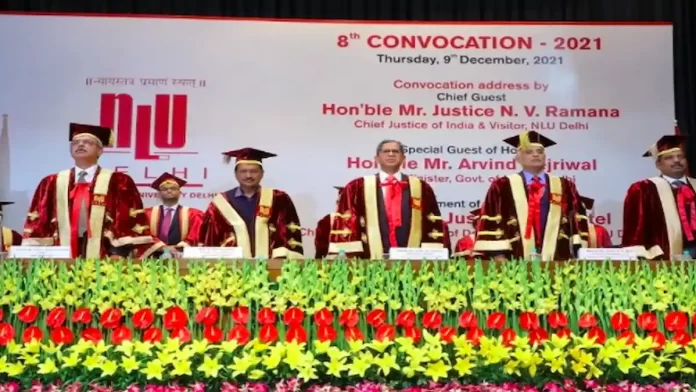Union Law Minister Kiren Rijiju on Friday told Lok Sabha that considerable autonomy has been given to National Law Universities in order to enable meaningful and effective law teaching.
In a written reply to the Lower House of the Parliament, the Law Minister said that National Law Universities enjoy considerable autonomy in matters such as the recruitment of teachers and staff as well as the framing and frequent revision of the curriculum.
“The nature and the format of the syllabus besides theoretical classes on various laws and jurisprudence also include project assignments practical training, moot courts, interdisciplinary research, clinical courses, internships, etc”, he added.
He said further that these intensive exposures given to the students of NLUs have helped in developing their professional abilities to handle litigation of all kinds including corporate litigation, legal advice, conveyancing, etc. competently.
National Law Universities and BCI
Referring to the role of the Bar Council of India (BCI) vis-a-vis National Law Universities, the Law Minister said that BCI as a part of its statutory responsibility has also framed Rules of Legal Education, 2008 under the power conferred by the Advocates Act, 1961 that deals with the determination of quality and standards of legal education and recognition of degree in law.
It may be noted that National Law Universities have been established through State enactments. They have benefited from allocations of land infrastructure, financial grants, and other development assistance from the State Governments, besides generating their own revenues.
The NLUs in spite of being created by State law, most of them admit students on merit through open competitive examination which determines the profile of the students.
